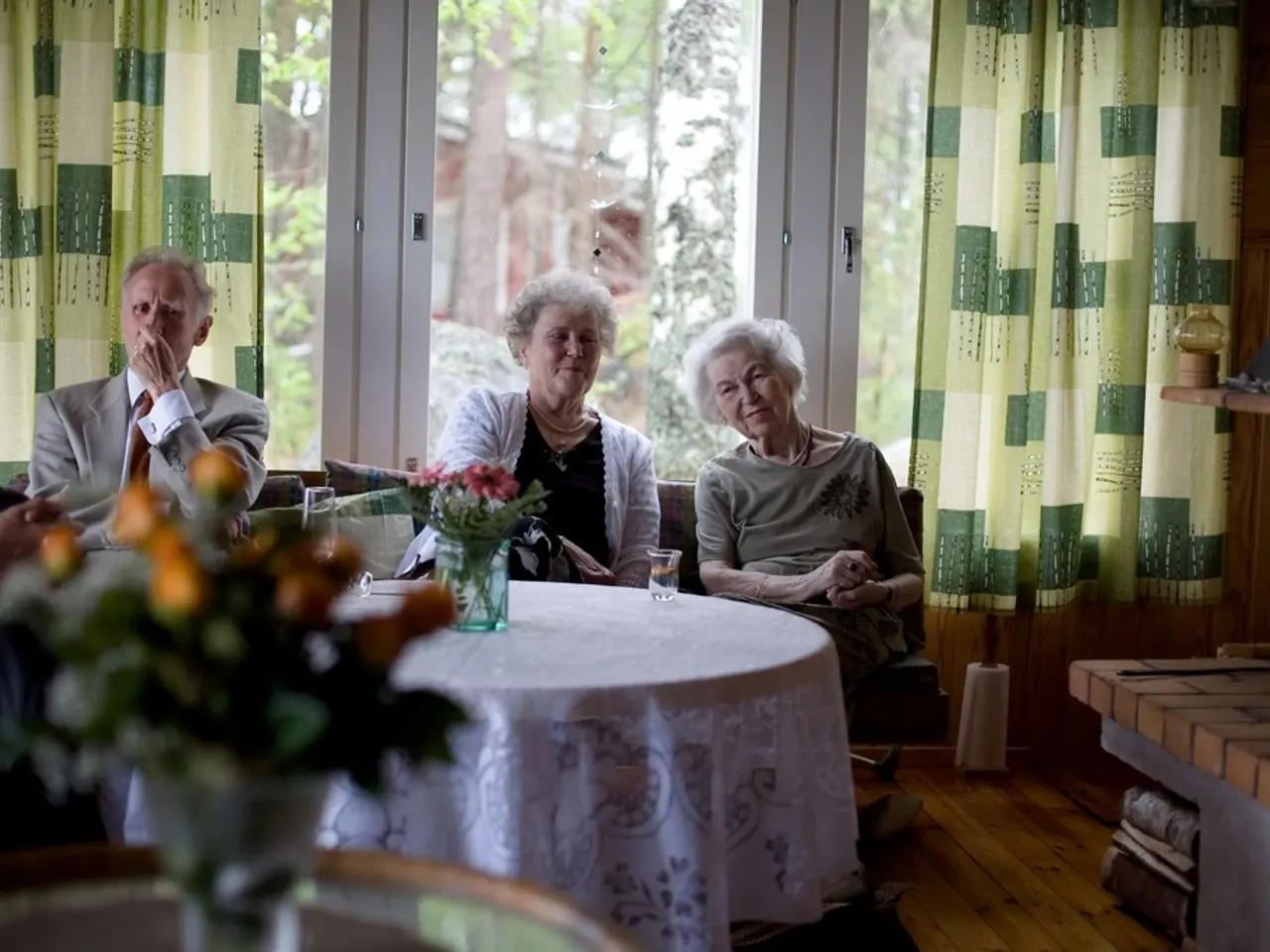Life's Progression: A Fundamental and Advantageous Aspect
As the global population continues to age, understanding the normal aging process has become increasingly important. Aging, a natural process that begins at conception and continues throughout the life cycle, is not merely about chronological age, but also about physiological or functional age, which is influenced by medical and psychosocial stressors.
Research suggests that some individuals report feeling up to 20 percent younger than their chronological age, highlighting the complexity of age perception. This perception is influenced by a combination of demographic, psychological, social, and lifestyle factors.
Psychological factors such as attitudes towards aging, purpose in life, acceptance of chronic conditions, and loneliness play a significant role in shaping how older adults perceive their functional age. Positive attitudes towards physical change and psychological growth, which vary by gender, are linked to purpose in life and acceptance, impacting aging self-perception. Psychological resilience and adaptive capacity also influence how individuals recover from health stressors, impacting perceived functional age.
Social factors like employment status, financial stability, and social connections significantly influence aging attitudes and the functional age perception. Social engagement helps maintain psychosocial well-being, making older adults feel functionally younger than their chronological age.
Age stereotypes and societal perceptions critically affect self-concept and functional age perception. Negative stereotypes about frailty, dependency, and technological illiteracy can lead to internalized ageism, resulting in an older individual perceiving themselves as functionally older than they might objectively be.
Health-related lifestyle factors such as smoking, physical activity, alcohol use, and social connectivity directly impact cognitive aging and overall functional ability. For example, smoking accelerates cognitive decline significantly, while maintaining healthy habits can slow brain aging, thereby influencing one's functional age perception relative to chronological age.
Demographic factors including gender and age also influence aging perceptions, with distinct differences seen in physical and psychological aging experiences between men and women.
In summary, the perception of functional age versus chronological age in older adults is multifaceted. It arises from an interplay of psychological resilience, lifestyle habits, social engagement, prevailing age stereotypes, and demographic characteristics. These collectively shape whether older adults experience and perceive their aging as functional decline or continued growth and capability.
Managing expectations, stress, and aging attitudes can affect awareness of age-related changes. Research on aging expectations and attitudes indicates associations with types of older adult contact. Moreover, geriatric assessments can guide decision-making in older patients with cancer by considering functional age rather than chronological age.
However, aging is often associated with negative perceptions such as incompetence, depression, memory loss, and inability to enjoy life. It is essential to challenge these negative stereotypes and promote a more positive outlook on aging, as aging, as described by Henry Wadsworth Longfellow, is seen as a beneficial part of life, offering opportunities that are different from those of youth.
- The field of nutrition science has a crucial role in workplace-wellness programs, focusing on maintaining digestive-health, eye-health, and skin-care for individuals of all ages.
- In the medical-conditions realm, research into chronic-diseases like cancer and respiratory-conditions aims to improve therapies-and-treatments and expand knowledge about autoimmune-disorders and mental-health issues in mens-health and womens-health.
- Education-and-self-development programs can help individuals better understand and manage their own health-and-wellness, focusing on personal-growth, career-development, and fitness-and-exercise.
- As people age, cardiovascular-health becomes increasingly important, with aging influencing the onset and progression of various medical conditions, including hearing issues.
- Medicare coverage plays a significant role in managing health-related expenses for older adults, particularly those dealing with skin-conditions and other age-related medical issues.
- Mental-health is an integral part of overall health and well-being, with therapies-and-treatments available for various conditions, such as depression and anxiety associated with aging.
- normalized, positive discussions about aging can help combat age-stereotypes and promote a more positive attitude towards aging, emphasizing its benefits and opportunities for personal growth.
- Aging is a natural aspect of life that affects each person differently, often influenced by factors like lifestyle habits, social connections, and psychological factors.
- Pragmatic approaches to aging, such as managing stress and adapting to changing circumstances, can help individuals maintain a functional age that is closer to their chronological age.
- Life-long learning and personal-development are essential for maintaining cognitive ability, regardless of age, as they contribute to better mental-health and overall life satisfaction.
- Positive attitudes, self-awareness, and a strong support network can help older adults cope with medical-conditions, chronic-diseases, and other age-related challenges.
- Embracing a multidimensional approach to aging - considering psychological, social, and physical factors - can lead to greater understanding and more effective strategies for promoting healthy aging.




